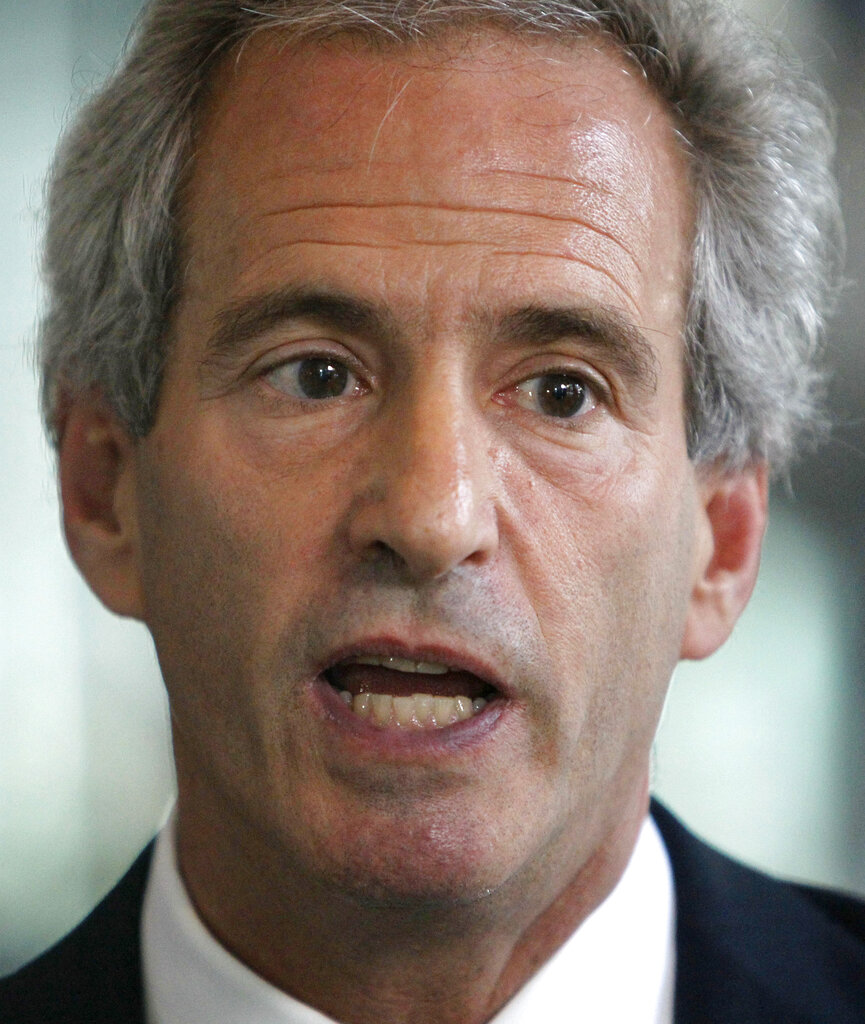Attorneys for former NCAA players filed an antitrust lawsuit against the association and five college sports conferences seeking millions of dollars in damages relating to academic benefits of which they were “illegally deprived.”
The lawsuit was filed on Tuesday, one day after the NCAA men’s basketball tournament ended, seeking triple damages for all current and former Division I athletes as far back as 2018. The named players in the lawsuit are former Oklahoma State running back Chuba Hubbard and former Auburn track athlete Keira McCarrell.
NCAA ATHLETE NIL DEALS UNFAIRLY FAVOR MEN, MAY VIOLATE TITLE IX, GROUP SAYS
In 2019, a federal judge in California ruled in favor of the attorneys in the famous NCAA v. Alston case, making it permissible for schools to provide close to $6,000 in academic benefits to college students.
The NCAA appealed the ruling to the Supreme Court and lost in 2021. Now, the new lawsuit is seeking damages from the organization for not providing those academic benefits to collegiate athletes.
“Since the Supreme Court’s decision in Alston, dozens of Division I schools have announced that they will be providing $5,980 academic awards to athletes across all sports,” attorney Steve Berman, who filed Tuesday’s lawsuit, said in a statement, per ABC News. “Thousands of female and male athletes, including many in sports other than football and basketball, will directly benefit from this action aimed at recovering the monetary awards, of which the NCAA illegally deprived them.”

Berman and Jeffrey Kessler, who spearheaded the Alston case, are the two attorneys leading the new lawsuit.
“While the injunction striking down the NCAA’s restrictions on education-related compensation, which was unanimously affirmed by the Supreme Court in Alston, unlocked life-changing benefits for NCAA Division I athletes moving forward, it did not rectify the harm suffered by thousands of Division I athletes who were unlawfully prevented from receiving education-related compensation before the injunction was issued,” Kessler said in a statement. “Plaintiffs aim to recover triple damages for those injuries here.”
The defendants named in the lawsuit are the NCAA, the Atlantic Coast Conference, Big Ten, Big 12, Pac-12, and the Southeastern Conference.
The organization lifted bans on college athletes being compensated for sponsorship and endorsement deals in 2021 following its loss in the Alston case.
Berman and Kessler have another case against the NCAA seeking damages for athletes that were denied by NCAA regulations to earn money for name, image, and likeness, known as NIL, going back to 2016.
Collegiate athletic stakeholders and experts, as well as athletes themselves, testified before the House Energy and Commerce Committee’s Subcommittee on Innovation, Data, and Commerce on March 29 to advocate a national standard for NIL.
Testimony came from Patriot League Commissioner Jennifer Heppel, Virginia State University President Makola Abdullah, former NFL player Trey Burton, Florida State University softball player Kaley Mudge, Washington State University athletics director Pat Chun, and College Football Players Association Executive Director Jason Stahl.
CLICK HERE TO READ MORE FROM THE WASHINGTON EXAMINER
There is continuing bipartisan consensus for national NIL deal requirements for college students that would supersede regulations and laws that vary by state.
A higher education policy group has also written a letter to Secretary of Education Miguel Cardona asking the Biden administration to launch a Title IX investigation into NIL sponsorships predominantly going to male athletes over female athletes.
The Washington Examiner has reached out to the NCAA for comment.

